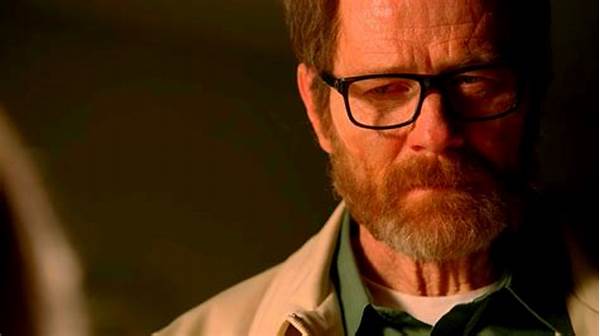Hey guys! Today, we’re diving into the world of TV series finales—the grand conclusion to shows that we’ve spent years (and sometimes a few too many weekend binge sessions) watching. Nothing beats that feeling when a beloved TV series wraps up every intricate storyline with a bow, or leaves us reeling with a plot twist we never saw coming. Let’s chat about how these finales have left a mark on both us and the world of TV. Grab your popcorn!
Read Now : Techniques For Fluid Sports Motions
What Makes a Series Finale Impactful?
Let’s talk about the magic behind impactful conclusions in series finales. When a show ends, it should leave viewers feeling satisfied, or at least emotionally moved. Remember “Breaking Bad”? Walter White’s story wrapped up all loose ends while keeping us on our toes—talk about nail-biting! What truly makes a finale impactful is its ability to resonate emotionally, successfully tie up, or daringly untie plotlines, and stay true to the characters we’ve grown to love.
We often find ourselves thinking about these finales long after the credits roll. Take “The Sopranos,” for example. Its controversial end left fans divided, but that ambiguity kept discussions alive for years. In contrast, some finales deliver a happiness dose, making us feel all warm and fuzzy inside—yes, “Parks and Recreation,” we’re looking at you! These impactful conclusions in series finales leave a lasting footprint in the TV world because they dare to push boundaries and challenge our expectations.
At the heart of it all, these endings tell us something bigger than the stories themselves. Whether it’s a message about life, society, or the bittersweet nature of change, we’re hooked. Impactful conclusions in series finales remind us of the magic of storytelling and that a perfect—or sometimes not-so-perfect—ending is what makes the journey worthwhile.
Key Elements of Impactful Conclusions
1. Emotional Closure: Impactful conclusions in series finales provide emotional closure, offering a satisfying farewell for fans who’ve journeyed with the characters.
2. Character Consistency: These finales stay true to character development, ensuring everyone ends where they should, leaving viewers happy or heartbroken in the best way possible.
3. Plot Resolution: They skillfully wrap up plotlines, whether with a bang or a subtle finish, making sure no stone is left unturned in the storytelling realm.
4. Lingering Impact: The best endings resonate long after they’ve aired, sparking debates and remaining in cultural conversations due to their powerful conclusions.
5. Courage to Surprise: Impactful conclusions in series finales aren’t afraid of the unexpected, offering twists that challenge viewers and defy predictions.
Why We Can’t Stop Talking About Them
Let’s be real: impactful conclusions in series finales are those watercooler moments that keep the conversation alive. Whether it’s the satisfaction of a well-tied storyline or the shock of an unexpected twist, these endings give us all something to talk about on Monday morning at work. Remember how everyone freaked out over “Game of Thrones”? Love it or hate it, it was on everyone’s lips.
And then there’s the emotional investment. We’ve spent years with these characters, rooting for them, rejoicing with them, and crying over their misfortunes. When a series finale hits all the right notes, it’s not just a goodbye to the show—it’s a farewell to a part of our lives. The discussions, theories, and emotions sparked by these finales often feel like shared cultural experiences that bring fans together.
Read Now : Balanced Core Training Regimen
But beyond just being conversation starters, impactful conclusions in series finales challenge us to look at storytelling from different angles. They remind us that endings can be both beautiful and tragic, expected or surprising. Whether they leave us satisfied or questioning every minute detail, these finales have a unique power to etch themselves into the annals of television history.
Example Series with Memorable Finales
The Emotional Roller Coaster of Series Finales
Navigating the world of series finales, one can’t help but feel a whirlwind of emotions. It’s a complex mix of excitement, dread, and curiosity, all leading up to that final episode. The suspense of wondering how your favorite characters’ stories will end keeps us glued to the screen. Some endings lift us with a sense of triumph and happiness, making us optimistic about life’s possibilities.
Yet, impactful conclusions in series finales can also bring a bittersweetness, marking the end of an era. It’s natural to feel a tinge of sadness when we bid farewell to characters we’ve watched evolve and grow. But isn’t that what makes a finale so powerful? It holds a mirror to reality, reminding us of the impermanence of things and inviting us to embrace whatever comes next.
In the end, series finales teach us about closure, change, and the beauty of storytelling. They symbolize the end of a chapter, but often, the emotional journeys and lessons they impart linger with us long after. And while a show’s ending may not please everyone, impactful conclusions in series finales offer us the chance to appreciate the narrative journey we’ve completed.
The Legacy of Impactful Series Finales
Impactful conclusions in series finales go beyond just the episode. A powerful finale often leaves a cultural imprint—think memorabilia, quotes, and perhaps even a generation longing for reboots. They inspire discussions and debates in fan circles and on social media, bringing strangers together to share their love or critique.
The lasting effect of a potent finale can be seen in how it influences future storytelling. Creators and writers learn from these endings, continually redefining what constitutes a successful conclusion. Each impactful ending sets a benchmark, a blueprint of sorts, for series creators eager to leave their mark on the television landscape.
In retrospect, while we may not encounter new stories with the same characters again, impactful conclusions in series finales ensure they remain evergreen in our hearts. The journey may conclude, but the stories, much like our conversations about them, continue to live on.
